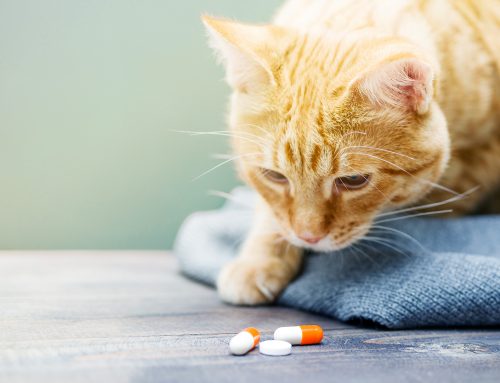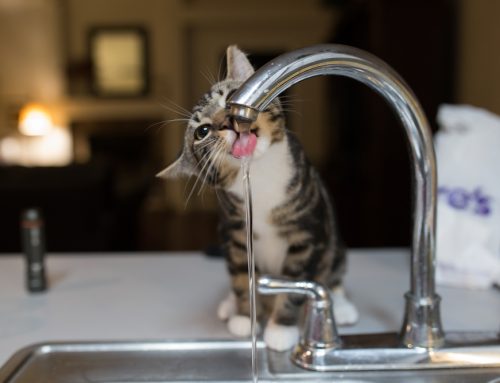The COVID-19 pandemic had far-reaching consequences across many sectors, and veterinary medicine was particularly hard hit. The veterinary professional mental health crisis had begun long before, but the pandemic highlighted the problems. Many professions have been compelled to focus on supporting their employees’ mental health, and while the veterinary field has made progress, many veterinary professionals continue to suffer. While we realize that we are not the only ones, we are the ones who care for your pets, and we are requesting community support, so we can continue to provide your pets with the highest quality care. Our Star of Texas Veterinary Hospital team explains the challenges veterinary professionals encounter and how you can provide support.
What factors impact veterinary mental health?
As your trusted partner in your pets’ health and wellbeing, your veterinarian’s responsibility goes beyond the clinic doors, yet the mental and emotional toll of this high-stakes profession is often overlooked. Veterinary professionals face a complex web of challenges unique to the profession that can significantly impact their mental health. Some difficulties faced by the professionals who are vital to our pets’ lives include:
- Increasing demand for veterinary care — Pet adoptions surged during lockdown, increasing the demand for veterinary services, which is good news for pets, but has added to the workload of already busy practices. The increase in caseload exacerbates veterinary professionals’ stress levels as they strive to provide the best care possible in a timely manner.
- Understaffing — At the same time, the veterinary industry is extremely understaffed, but employees are dedicated to helping every animal possible, which can lead to an overwhelming workload and long hours
- Crushing student debt — Many veterinarians graduate with staggering student debt, which adds financial stress to their lives. While the job is emotionally rewarding, the salaries in veterinary medicine often don’t align with the debt burden, creating additional tension, because they cannot plan for their personal future, such as buying a house or practice, raising a family, or saving for retirement.
- Compassion fatigue — Veterinary professionals deal with heart-wrenching scenarios regularly, including animal abuse, chronically sick pets, animals in extreme pain, and euthanasia. Over time, this exposure leads to burnout and compassion fatigue, which can leave lifelong emotional scars.
- Difficult client interactions — Most pet owners are cooperative and understanding. However, frustrated, angry, or grieving clients who are disrespectful to veterinary team members impact the emotional wellbeing of the people who are doing their very best to care for their pets.
How you can help improve veterinary professionals’ mental health
Pet owners can make a meaningful difference for veterinary professionals and their challenges. Your actions—which need only be small—can help improve the work environment for those who are dedicated to your precious pet’s care. These simple steps will make a huge difference to your veterinary team’s wellbeing:
- Be patient and understanding — Veterinary clinics are high pressure environments, and unexpected emergencies can arise at any moment. By being patient and understanding, you can ease some of the tension about delays. After all, you would want your veterinarian to immediately take care of your pet in an emergency situation.
- Schedule regular wellness visits — Preventive care is easier to manage than emergencies, both for your pet and for your veterinarian. By scheduling regular wellness visits, you help to spread out the workload and allow your veterinarian to provide comprehensive preventive care that keeps your pet healthy. Also, regular wellness checks serve you and your pet better by detecting problems earlier, when treatment not only has a better outcome but also is less costly.
- Show up on time — Punctuality is more than a courtesy— being on time is a significant factor in helping a veterinary team’s day run smoothly. Late arrivals can push back everyone else’s appointments and add unnecessary stress to an already busy day.
- Say “Thank you” — Kind words have a powerful impact. A simple “thank you” will help your veterinary team feel valued and respected, and lift their spirits.
- Follow care instructions — Your veterinarian provides specific treatment plans to ensure the best possible outcome for your pet. Diligently following these instructions helps ensure the treatment produces the desired results, and reduces the likelihood of complications, which means a better outcome for your pet and eases your concerns and those of your veterinary team.
 Give positive feedback — Online reviews and testimonials are more than a pat on the back for a job well done. They’re affirmations of a veterinarian’s skills and dedication and can provide a much-needed morale boost. If your veterinary team does a fantastic job, let others know.
Give positive feedback — Online reviews and testimonials are more than a pat on the back for a job well done. They’re affirmations of a veterinarian’s skills and dedication and can provide a much-needed morale boost. If your veterinary team does a fantastic job, let others know.- Speak openly and kindly — Maintain an open line of communication with your veterinarian. Open, respectful dialogue not only improves your pet’s care but also fosters a supportive environment for veterinary professionals.
- Refrain from posting negative comments online — Discuss a less-than-ideal experience directly with your veterinary team before jumping on social media to write a negative review. We appreciate client feedback and will always do everything possible to ensure you feel heard, understood, and satisfied.
When you understand the unique stressors of veterinary mental health and take these steps, you will be supporting our Star of Texas Veterinary Hospital team and in turn, yourself and your pet, because when we take care of those who take care of our pets, everyone benefits. We love our profession, caring for your pet, and helping all animals. So, call us to schedule your pet’s next wellness appointment—and we sincerely thank you for your support.






